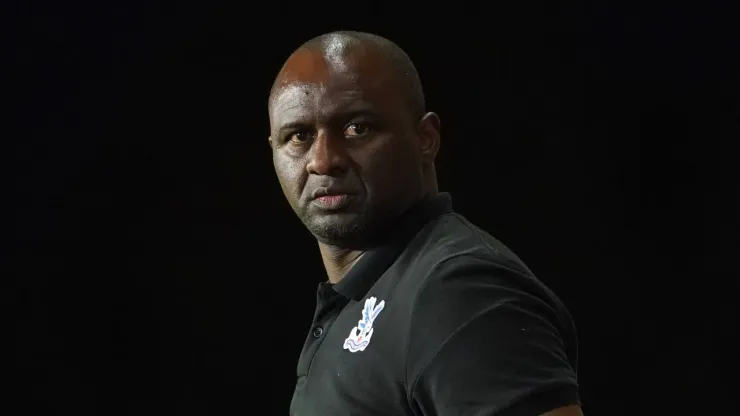
Patrick Vieira claimed that there are not enough black coaches in the top leagues around Europe. Vieira, a former Arsenal star, explained that people of color need more of an opportunity in this field. The Crystal Palace coach is the only black coach in the Premier League at the moment.
“We have to give opportunities to people of color,” Vieira recently proclaimed on BBC’s Football News Show.
“We are as good as anybody else. And we need to have no more or less opportunity than anybody else. When you are looking at the top five leagues in the world and you’re looking at the number of black coaches you have in the first or second division, it is not enough.”
“There is a lack of opportunity there. There is a lack of connection from black players to connect ourselves a little bit more with people who are making the decisions.”
“But overall I believe that the doors are not open for us to do what we can do and to go into management. When I talk about management I’m talking about the team, but I’m also talking about the higher level as well.”
“We need to be given more opportunities to show that we are as good as anybody else.”
Patrick Vieira calls for more black coaches in soccer
A recent study has showed that 43% of Premier League and 34% of English Football League players are black. Despite this, only 4% of head coaches in these leagues are black. The EFL consists of tiers two, three, and four of the professional soccer pyramid in England.
The Football Association previously introduced a diversity code in 2020 to help address racial inequality in the sport. As part of the plan, all Premier League clubs have agreed to provide annual data on all of their workers. Nevertheless, Vieira sees more potential.
Not only are former black players not regularly receiving head coaching jobs, but these disproportionate figures also include roles in scouting and junior coaching as well.
The aforementioned report claims that only 8.9% of former players that transitioned into coaching/administration roles are black. The timeframe for this particular study was between 2004-2020.
PHOTO: IMAGO / PA Images
200+ Channels With Sports & News
- Starting price: $33/mo. for fubo Latino Package
- Watch Premier League, Liga MX & Copa Libertadores
The New Home of MLS
- Price: $14.99/mo. for MLS Season Pass
- Watch every MLS game including playoffs & Leagues Cup
Many Sports & ESPN Originals
- Price: $10.99/mo. (or get ESPN+, Hulu & Disney+ for $14.99/mo.)
- Features Bundesliga, LaLiga, NWSL, & USL
2,000+ soccer games per year
- Price: $7.99/mo
- Features Champions League, Serie A, Europa League & EFL
175 Premier League Games & PL TV
- Starting price: $7.99/mo. for Peacock Premium
- Watch 175 exclusive EPL games per season





